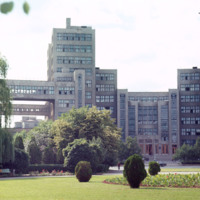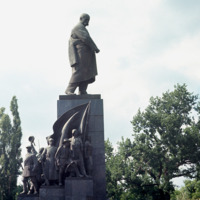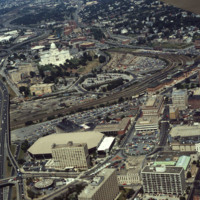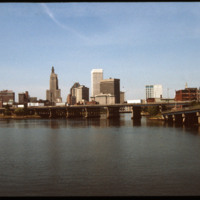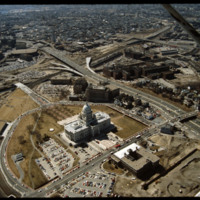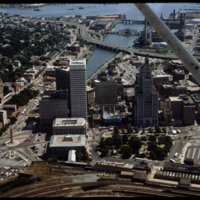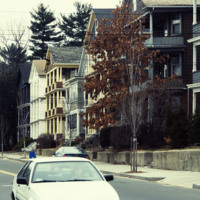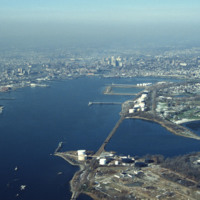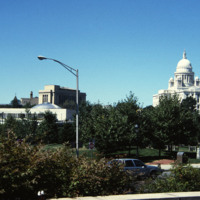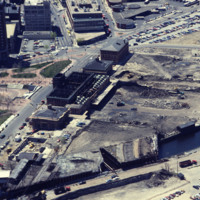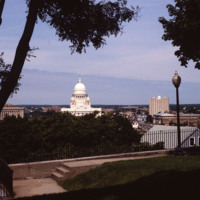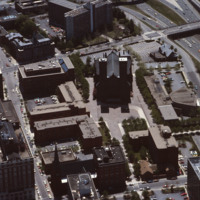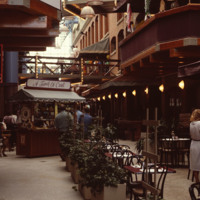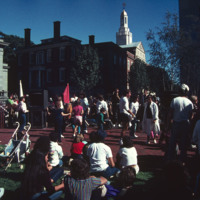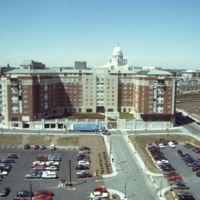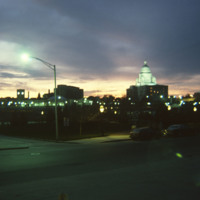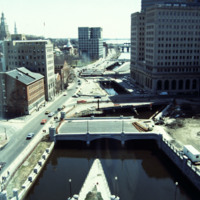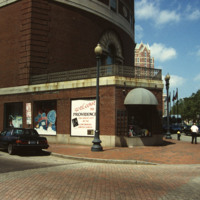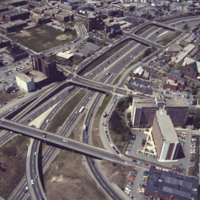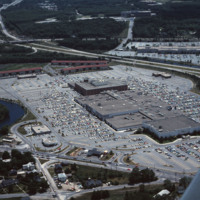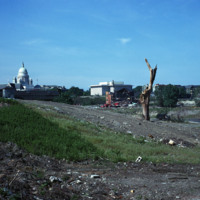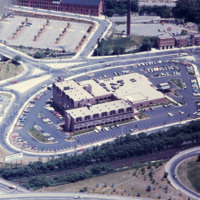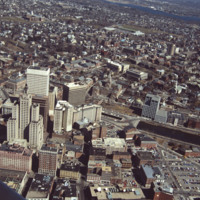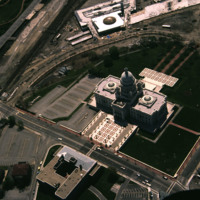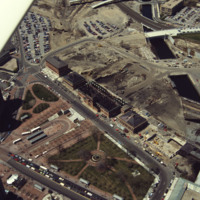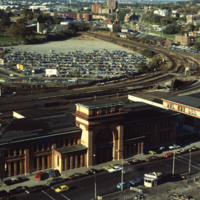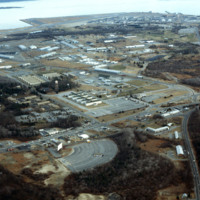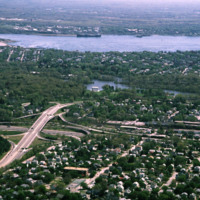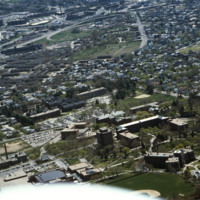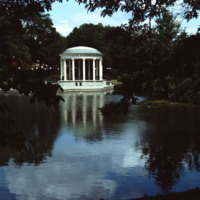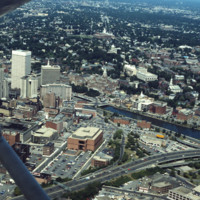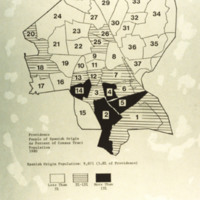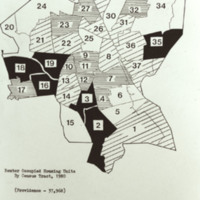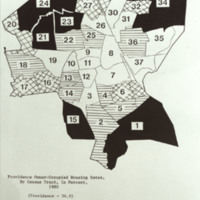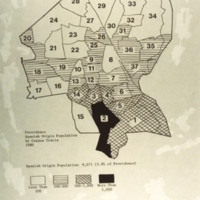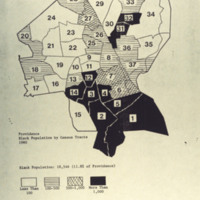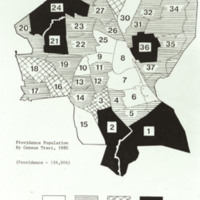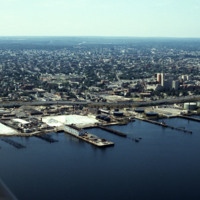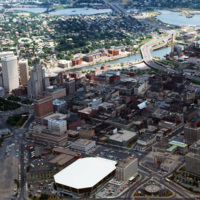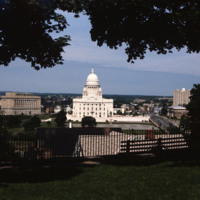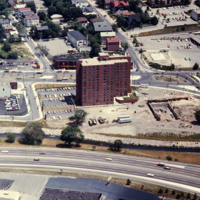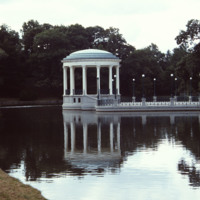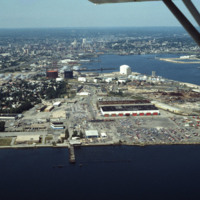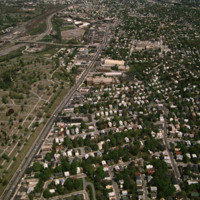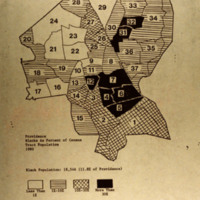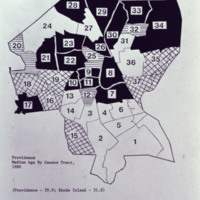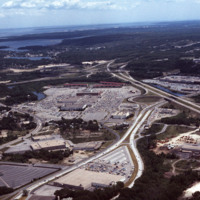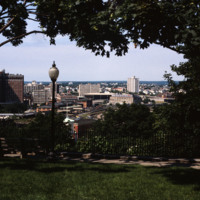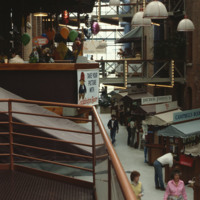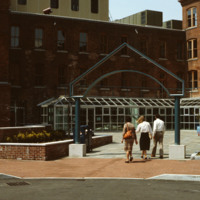Browse Items (993 total)
- Collection: Chester Smolski Photographs
Derzhprom or, Gosprom, or State Industry Building
Tags: Derzhprom, Freedom Square, Gosprom, Kharkov, skyhook, Skyscraper, urban development
Monument to Taras Shevchenko (1814-1861), Kharkov, Ukraine
I-95, Providence Civic Center, Capital Center (1983)
Downtown Providence from Point St. Bridge
Aerial of Rhode Island State House, Providence Station Construction
Aerial of Financial District
Triple-Deckers on Eaton St.
Tags: housing, rental housing, residential
Aerial of Providence River looking north toward the city
Tags: aerial, Providence River, rivers, urban development
Rhode Island State House and Providence Station
Union Station damaged by fire and excavations to the north
Rhode Island State House from Prospect Terrace Park
Downtown Providence - Cathedral Square and I-95
Davol Square Shopping Mall (Interior)
Old Stone Square on South Main Street
View of Center Place & Rhode Island State House
Providence Station and Rhode Island State House looking west at dusk
Construction on Memorial Blvd. Looking South from One Citizens Plaza at the Confluence of the Moshassuck and Woonasquatucket Rivers
Welcome to Providence “Safest City” Sign on Providence Biltmore Hotel
Tags: Biltmore Hotel, downtown, historic buildings, hotels, Safety, skyscrapers
Aerial of Interstate 95 at downtown Providence
Tags: aerials, highways, I-95, land use, Providence, transportation
Aerial View of Warwick Mall
Tags: aerial, commerce, highways, interstate 95, Mall, shopping malls, suburbs, Warwick Mall
Randall Square - State House & Public Health Building
Tags: I-95, Randall Square, state house, vacant property, wasteland
Aerial View of the Providence Marriott Hotel
Tags: hotels, Marriot Hotel, Providence, urban development
Aerial of Financial District looking east
Aerial of Rhode Island State House and Train Station
Tags: aerial, state house, urban development
Aerial of fire-damaged Union Station and Capital Center redevelopment in progress.
Downtown parking north of rail lines
Aerial View of Quonset Point
Roger Williams Park in South Elmwood
Aerial of Elmhurst and Wansuck neighborhoods
Bandstand at the Casino (Roger Williams Park)
Aerial of downtown Providence looking east
Tags: aerial, city planning, downtown, downtowns, highway, Providence River, skyline, skyscrapers
Map of People of Spanish Origin as Percent of Census Tract 1980- Providence
Tags: census, Hispanic, Hispanic population, maps, Spanish origin
Renter Occupied Housing Units 1980 - Providence
Tags: census, housing, housing rates, maps, real property surveys, rental housing, Renters
Providence Owner Occupied Housing Rates-1980
Port of Providence just south of Collier Park
Providence (Aerial): Looking East
Rhode Island State House from Prospect Terrace Park
Providence Charlesgate Apartments and Nursing Center under construction
The Bandstand behind the Casino at Roger Williams Park, Providence
Aerial View of Fields Point in Washington Park, Providence
Aerial View of North Burial Ground, North Main St.
Tags: aerial, cemeteries, North Burial Ground
Aerial view of Warwick and Rhode Island Malls
Tags: aerials, malls, Rhode Island Mall, shopping malls, Warwick Mall
